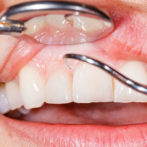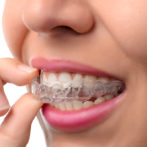Diabetes: Gum Mouth And Teeth Problems To Watch
Did you know that having diabetes increases your risk of gum, mouth and teeth problems? Gum disease, the most common oral health problem associated with diabetes, can also make it harder to control your blood sugar levels. If you have diabetes, here are some important tips to keep your teeth and gums in tip top shape. Gum disease Gum disease, also known as periodontal disease, is the most common gum, mouth and teeth problem faced by diabetics. If left untreated it can lead to tooth loss, and the resulting inflammation can also make it harder to manage your blood sugar levels. Diabetes increases your risk of gum disease in two different ways. When blood sugar levels are not well controlled, this also increases sugar levels in the fluids in your mouth, which feeds bacteria associated with gum disease. Diabetes can cause thickening of blood vessels that carry essential nutrients including oxygen and remove waste products from parts of your body. When the blood vessels of your gums, mouth and teeth are affected in this way, it increases your risk of gum disease by weakening the immune system in your mouth and increasing the risk of infection in your gums. Warning signs of gum disease If you notice any of the following symptoms it’s important that you follow up with a visit to a good dentist who understands how diabetes can affect your gum health. Don’t ignore these symptoms of gum disease: Bleeding gums when brushing or flossing. This is called gingivitis and is the first stage of gum disease. Receding gums. Bad breath. Gums that are sore, tender or swollen. Your teeth feel loose, or the way they fit together when you bite has changed. Your dentures, partial dentures or bridges have changed the way they feel or fit. How to prevent gum, mouth and teeth problems if you have diabetes Don’t ignore the symptoms of gum disease. With a bit of help from your dentist you can successfully treat and prevent gum or periodontal disease. See your dentist twice a year to remove plaque and tartar. Tartar is plaque that has hardened and cannot be brushed off with a toothbrush. It needs dental treatment to be removed. Brush your teeth twice daily. Floss regularly. Control your blood sugar levels with a healthy diet and medication if needed – speak to your doctor about how to do this. If you’re struggling with controlling your blood sugar levels with your diet, ask for a referral to a dietician or nutritionist. Dental treatments for diabetics Don’t forget to tell your dentist if you have been diagnosed with diabetes. They can put an action plan in place to help you avoid or...
Read More

